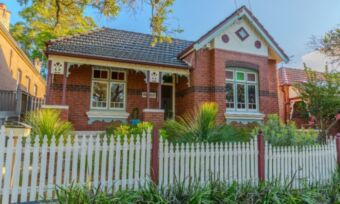Self-employed home loans – what do you need to know?
If you’re a self-employed borrower seeking a home loan, there are options for you on the market, but you may need to jump through more hoops than a standard borrower. Here are some important things you need to know.

If you’re a self-employed borrower seeking a home loan, there are options for you on the market, but you may need to jump through more hoops than a standard borrower. Here are some important things you need to know.
When you apply for a home loan, you will need to show the lender proof of your financial status, including your income. For many people, this proof is available in the form of Pay As You Go (PAYG) payslips, but sole traders, freelancers and other people who run their own business may not have the same level of documentation. It’s for this reason that financial institutions may require self-employed people to provide other forms of proof, limit the types of loans available to them and apply stricter lending criteria than required for other borrowers.
Can you get a home loan if you are self-employed?
Yes, you can get a home loan if you are self-employed, but the lending criteria for a self-employed mortgage might be more strict. Lenders will want to find out as much information about a borrower’s finances as possible, to establish their income, savings, assets and capacity to pay back a loan. They are also likely to consider your business’ financial position.
They may take into account the length of time you have owned your business, and its performance over time. For example, if you have only been self-employed for one year, banks and lenders may consider you a riskier prospect than someone who has been running their own business and earning a stable income from it for several years.
Generally speaking, the riskier a bank or lender perceives a borrower to be, the more hesitant they might be to approve a home loan application, or the more strict the conditions they might impose, such asking for a higher deposit. Some lenders also have specific home loans for self-employed borrowers.
The comparison rate for all home loans and loans secured against real property are based on secured credit of $150,000 and a term of 25 years.
^WARNING: This comparison rate is true only for the examples given and may not include all fees and charges. Different terms, fees or other loan amounts might result in a different comparison rate.
 Owner occupied
Owner occupied
 20% min deposit
20% min deposit
 Redraw facility
Redraw facility
Canstar may earn a fee for referrals from its website tables, and from Sponsorship or Promotion of certain products. Fees payable by product providers for referrals and Sponsorship or Promotion may vary between providers, website position, and revenue model. Sponsorship or Promotion fees may be higher than referral fees. Sponsored or Promoted products are clearly disclosed as such on website pages. They may appear in a number of areas of the website such as in comparison tables, on hub pages and in articles. Sponsored or Promoted products may be displayed in a fixed position in a table, regardless of the product’s rating, price or other attributes. The table position of a Sponsored or Promoted product does not indicate any ranking or rating by Canstar. For more information please see How We Get Paid.
What kind of documents do you need to apply for a self-employed home loan?
Every lender will have their own criteria for what they require from a home loan applicant, and there are some things that lenders will typically always want to see, such as ID documents and information about your assets and liabilities. If you are wondering how to get approved for a home loan when self-employed, however, there are some things that lenders will likely ask for in order to give them an idea of your financial position. These could include:
- One to two years’ worth of business tax returns
- Two years’ worth of personal tax returns
- Your most recent notice of assessment from the Australian Tax Office (ATO)
- Two years’ worth of bank and financial statements from your business.
If your business is less than two years old or if you do not have this documentation, you may also be asked to provide such things as:
- Proof of ABN and GST registration for your business
- Six to 12 months’ worth of Business Activity Statements (BAS)
- Tax returns older than two years
- A letter from an accountant who has knowledge of your circumstances, verifying your financial position.
What are low doc and full doc home loans?
Different types of loans require different kinds of documentation:
- a ‘full doc’ or full documentation loan is one in which a borrower would provide a standard amount of supporting documents as evidence of their income
- a ‘low doc’ or low documentation loan is one that might be geared towards someone such as a self-employed person, who cannot provide standard documents such as PAYG payslips.
One key difference between the two types of loans may be the interest rate. Generally speaking, loan types that require less documentation than others for approval purposes are seen as being a higher risk loan. This higher risk usually means that a higher interest rate would be applied to that type of loan.
For this reason, low doc home loans, which may be one option you’re considering if you’re self-employed, may come with higher interest rates attached than full doc ones.
Explore: Low doc personal loans for the self-employed
What are some things to be wary of when applying for a self-employed home loan?
When applying for a home loan as a self-employed borrower, there are some things to be wary of, including that not every lender may do business with self-employed borrowers, and, if you are successful in your loan application, you may find that you are offered a loan type with a higher interest rate or lower LVR than a standard borrower.
Smaller array of lenders
While many home lenders, including major banks, will lend to self-employed borrowers, it may not always be the case. This may mean that the range of options open to you for a home loan is slightly more limited than if you were applying for a home loan with PAYG payslips as evidence of income.
Higher interest rates
Generally speaking, lenders may only allow certain types of borrowers to apply for certain loan products. If you are self-employed, you may only be able to apply for loans with a higher interest rate, which would mean that you would pay more in the long term for your home loan. It is not always the case that lenders do this, however, and some, including major banks, will offer the same loans to self-employed borrowers as standard ones.
Higher deposit requirement
The loan-to-value ratio (LVR) of a home loan is the proportion of the purchase price of a property that a lender is willing to approve for a borrower. The lower the LVR of a loan, the larger a deposit the buyer will need – say a lender is willing to offer you a loan with a 70% LVR, that would mean you would need a 30% deposit saved up to purchase the property.
Much as lenders may offer loan types that have a higher interest rate to borrowers they perceive as risky, they may also only be willing to offer self-employed buyers a loan with a lower LVR, depending on their assessment of the borrower’s financial situation. You may likewise be asked to pay lender’s mortgage insurance (LMI).
Cover image source: Mallika Home Studio/Shutterstock.com
This article was reviewed by our Editor-in-Chief Nina Rinella before it was updated, as part of our fact-checking process.

Alasdair Duncan is Canstar's Deputy Finance Editor, specialising in home loans, property and lifestyle topics. He has written more than 500 articles for Canstar and his work is widely referenced by other publishers and media outlets, including Yahoo Finance, The New Daily, The Motley Fool and Sky News. He has featured as a guest author for property website homely.com.au.
In his more than 15 years working in the media, Alasdair has written for a broad range of publications. Before joining Canstar, he was a News Editor at Pedestrian.TV, part of Australia’s leading youth media group. His work has also appeared on ABC News, Junkee, Rolling Stone, Kotaku, the Sydney Star Observer and The Brag. He has a Bachelor of Laws (Honours) and a Bachelor of Arts with a major in Journalism from the University of Queensland.
When he is not writing about finance for Canstar, Alasdair can probably be found at the beach with his two dogs or listening to podcasts about pop music. You can follow Alasdair on LinkedIn.
The comparison rate for all home loans and loans secured against real property are based on secured credit of $150,000 and a term of 25 years.
^WARNING: This comparison rate is true only for the examples given and may not include all fees and charges. Different terms, fees or other loan amounts might result in a different comparison rate.
 Owner occupied
Owner occupied
 50% min deposit
50% min deposit
 Redraw facility
Redraw facility
Try our Home Loans comparison tool to instantly compare Canstar expert rated options.





